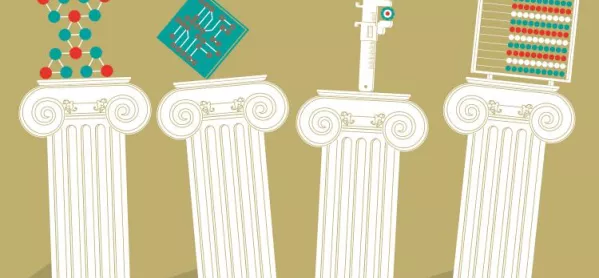Just as Theresa May can’t say she finds Donald Trump’s tweets shocking and offensive, and turkeys can’t vote for Christmas, so sixth-form college principals can’t say that sixth-form funding rates are putting the education of sixth formers at risk. After all, we have businesses to run.
There is a collective vow of silence, motivated by the instinct for institutional self-preservation, and there is no shortage of competition.
In 2009-10, Barton Peveril Sixth Form College was funded at £4,825 per student; this year, we receive £4,282. That fall of £543 per young person represents nearly £1.6 million less in our budget based on current student numbers. So what does 11 per cent less cash - coupled with an increase in inflation of more than 20 per cent over the same period - mean for our students?
My eldest son started in sixth form in 2009. He could take as many A levels as made sense for his ability and future plans; his academic needs would, within limit, be funded. Most students took four subjects, some even took five. He had more than 20 hours’ teaching per week. He was taught by staff who, that year, had received a cost-of-living pay rise of 2.3 per cent to (almost) match the 2.4 per cent increase in inflation according to the retail prices index. Halcyon days!
My second son started his sixth form in 2014. Since 2009, staff pay had risen by just 2.75 per cent. The ratio of teachers to students in the college had dropped from 1:17 to 1:23, and for support staff to students from 1:34 to 1:43. He joined a college - miraculously - still thriving academically, still offering excellent value to the student, but largely because of the professionalism, goodwill and compensatory efforts of its staff.
Making a difference
Financial metrics suggest the college is strong in the short term: we have a surplus projected at above 3 per cent at the end of 2017, 2018 and 2019. Three-quarters of our students progress to university and, according to the Higher Education Statistics Agency, students from the college gain significantly more good degrees (firsts and upper seconds), and with fewer dropping out, than the average for any other type of school, including independents.
We are making a real difference to people’s life chances, even, or especially - in the words of Ofsted - “those from socioeconomically deprived areas”. We are also contributing to the rebalancing of the economy: we are the largest provider of science A levels in the sub-region and a third of our university entrants are reading science, engineering or maths.
Not a problem, then. Rather, we’re an example of exemplary public sector reform: trimming off the fat, reducing the number of managers, bringing staff costs down (to 60 per cent of turnover), and growing our student total from 2,343 in 2009 to 3,015 today.
But like the dormant virus planted by the villain in Skyfall, the threat to the sixth-form phase of education still sits there.
Jonathan Prest is principal of Barton Peveril Sixth Form College in Eastleigh, Hampshire
This is an edited version of an article in the 31 March edition of TES. Subscribers can read the full story here. To subscribe, click here. To download the digital edition, Android users can click here and iOS users can click here. Your new-look TES magazine is available at all good newsagents.
Want to keep up with the latest education news and opinion? Follow TES FE News on Twitter, like us on Facebook and follow us on LinkedIn

